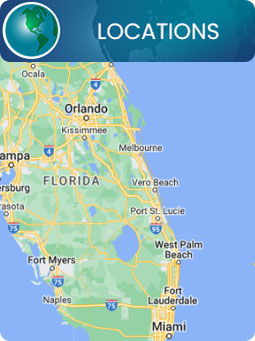Herpetic Neuralgia Symptoms, Causes, and Treatment Doctor Q&A
Herpetic neuralgia is the most common shingles effect. Herpetic neuralgia develops when nerve fibers get compressed during a shingles outbreak. It causes nerve and skin pain. If you’ve had chickenpox, you’ll always have an infection in your body. Get treatment for herpetic neuralgia at the Global Neuro & Spine Institute. Contact us today to learn more or schedule an appointment online. We have convenient locations to serve you in Orlando FL, Jensen Beach FL, Malabar Palm Bay FL, Atlantis FL, Fort Pierce FL, Winter Park FL and Plantation, FL.


Table of Contents:
What are the causes and symptoms of herpetic neuralgia?
What are the types of neuralgia?
What part of the body does neuralgia affect?
How long does herpetic neuralgia last?
If you have ever had chickenpox, even as a young child, the virus will always remain in your body, likely just remaining dormant your entire life. However, in some cases, the virus will become active again, causing an outbreak of shingles which can be followed by post-herpetic neuralgia as a common complication. The virus can be prevented through vaccinations, so it is very important to ensure that your body is properly protected to prevent having to experience pain or other complications.
Herpetic neuralgia occurs when there is damage done to the nerve fibers during a shingles outbreak, developing in around one fifth of those who get shingles. The virus that leads to post-herpetic neuralgia is the same virus that causes chickenpox and shingles. Common symptoms of post-herpetic neuralgia include sensations of itching, burning, aching pain, or numbness at the site of the rash that developed due to the shingles outbreak. This pain will typically come and go over a span of three months once the rash has fully healed but can last longer in some cases. The area can become quite sensitive to touch, where even light clothing brushing against the affected skin causes pain, and the pain will often worsen in hotter or colder temperatures. It is also common for those suffering from post-herpetic neuralgia to experience increased fatigue and to have troubles sleeping during the flare-up due to discomfort.
There are several types of neuralgia as the condition is categorized depending on the cause of the nerve damage and which nerves are being affected. The various types of neuralgia include the following:
– Post-herpetic neuralgia
Occurs in the location of a shingles outbreak due to a complication leading to nerve damage.
– Trigeminal neuralgia
This is the most common type of neuralgia, typically occurring on one side of the face as a result of nerve damage that occurs in the face, often due to a severe dental condition, a swollen blood vessel, MS, or diabetes.
– Occipital neuralgia
This type of neuralgia is fairly rare, occurring in the scalp and often resulting in a specific type of headache.
– Glossopharyngeal neuralgia
Another rare type of neuralgia, this type occurs in the throat, causing pain throughout the throat and neck.
– Intercostal neuralgia
This type of neuralgia occurs in the intercostal nerves, which are located throughout the rib cage, chest, and abdomen.
Neuralgia refers to nerve pain, meaning any nerves throughout the body can experience neuralgia but some areas are more likely to be affected than others. It occurs when damage is done to a nerve, often resulting from a health condition, and affects how the nerves carry information to the brain, feeling quite different from any other type of pain that is experienced throughout the body. The sensations that are typically experienced due to neuralgia include burning, aching, stabbing, often described as severe pain, can be constant or come and go, and is located at the point where the nerve has been irritated or damaged. The most common causes of neuralgia include health conditions that lead to nerve irritation or damage, such as diabetic neuropathy, multiple sclerosis, an infection that affects the skin, or just the process of aging.
The total amount of time that people experience herpetic neuralgia pain varies quite a bit, lasting several weeks on the low end, and in rare cases lasting for years, even after the shingles rash has completely gone away. In most cases, the pain will be completely gone within 3 months, but one fifth of patients experience lasting pain for longer than one year. Other than addressing the shingles outbreak as early as possible (within a couple of days of the outbreak starting), there is not much that can be done to speed up the healing process or prevent herpetic neuralgia, but your physician will be able to prescribe or recommend some treatments to help manage pain until it goes away on its own. Mild pain can be treated with over-the-counter pain medications including acetaminophen or ibuprofen, or creams and patches, whereas more severe pain will likely require prescription medications to provide pain relief.
Herpetic neuralgia is a painful illness that affects nerve fibers and the skin. At Global Neuro & Spine Institute, herpetic neuralgia is treated by our medical specialists. If you have herpetic neuralgia, do not hesitate to visit us. For more information, contact us or book an appointment online. We serve patients from all across the Sunshine State, in Orlando FL, Conway FL, Edgewood FL, Jensen Beach FL, Ocean Breeze FL, Rio FL, Malabar Palm Bay FL, Melbourne FL, Atlantis FL, Palm Springs FL, Boynton Beach FL, Fort Pierce FL, White City FL, St Lucie FL, Plantation FL, Pine Island Ridge FL, Lauderhill FL, Winter Park FL, Bertha FL, Alafaya FL and surrounding areas.

CONDITIONS WE TREATED:
- Facet Joint Disorders
- Back Surgery Complications
- Migraines
- Herniated Discs
- Back Pain
- Lower Back Pain
- Neck Pain
- Sciatica Pain
- Abdominal Pain
- Compression Fractures
- Joint Pain Treatments
- Shoulder Pain Treatments
- Elbow Pain Treatments
- Hip Pain Treatments
- Knee Pain Treatments
- Diabetic Peripheral Neuropathy
- Complex Regional Pain Syndrome
- Pelvic Pain
- Occipital Neuralgia
- Chest Wall Pain
- Chronic Facial Pain
- Phantom Limb Pain
- Interstitial Cystitis – Pelvic Pain
- Herpetic Neuralgia
- Cervical Radiculopathy
- Degenerative Disc Disease
ADDITIONAL SERVICES
- Kyphoplasty
- Epidural Steroid Injection
- Posterior Facet Blocks – Rhizotomy
- Sacroiliac Joint Injection
- Percutaneous Discectomy
- Stellate Ganglion Blocks
- Intercostal Nerve Blocks
- Intra-Articular Peripheral Joint Injection
- Lumbar Epidural Steroid Injections
- Coccygeal Nerve Block
- Occipital Nerve Blocks / Rhizotomy
- Selective Nerve Root Blocks
- Discography
- Hardware Blocks
- Cluneal Nerve Block
- Spinal Cord Stimulators
- Sympathetic Nerve Blocks
- Headaches Treatments

CONDITIONS WE TREATED:
- Facet Joint Disorders
- Back Surgery Complications
- Migraines
- Herniated Discs
- Back Pain
- Lower Back Pain
- Neck Pain
- Sciatica Pain
- Abdominal Pain
- Compression Fractures
- Joint Pain Treatments
- Shoulder Pain Treatments
- Elbow Pain Treatments
- Hip Pain Treatments
- Knee Pain Treatments
- Diabetic Peripheral Neuropathy
- Complex Regional Pain Syndrome
- Pelvic Pain
- Occipital Neuralgia
- Chest Wall Pain
- Chronic Facial Pain
- Phantom Limb Pain
- Interstitial Cystitis – Pelvic Pain
- Herpetic Neuralgia
- Cervical Radiculopathy
- Degenerative Disc Disease
ADDITIONAL SERVICES
- Kyphoplasty
- Epidural Steroid Injection
- Posterior Facet Blocks – Rhizotomy
- Sacroiliac Joint Injection
- Percutaneous Discectomy
- Stellate Ganglion Blocks
- Intercostal Nerve Blocks
- Intra-Articular Peripheral Joint Injection
- Lumbar Epidural Steroid Injections
- Coccygeal Nerve Block
- Occipital Nerve Blocks / Rhizotomy
- Selective Nerve Root Blocks
- Discography
- Hardware Blocks
- Cluneal Nerve Block
- Spinal Cord Stimulators
- Sympathetic Nerve Blocks
- Headaches Treatments






